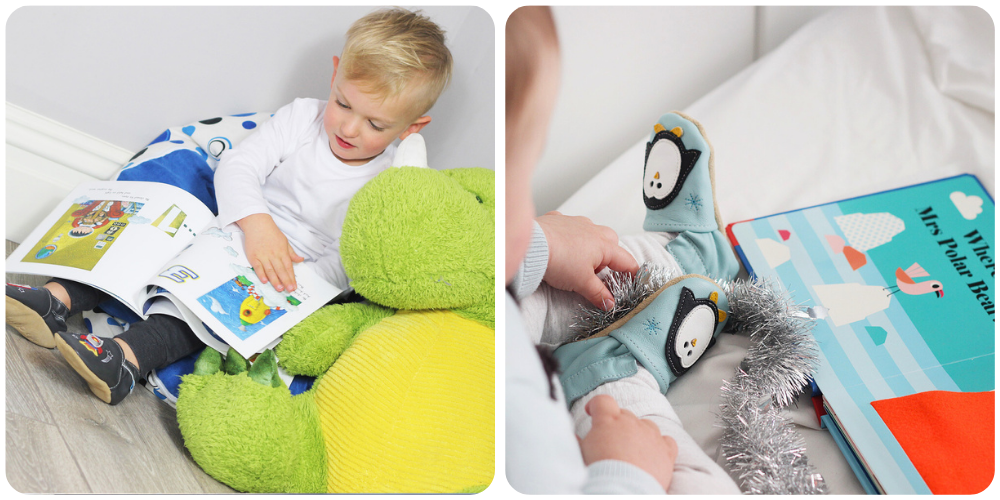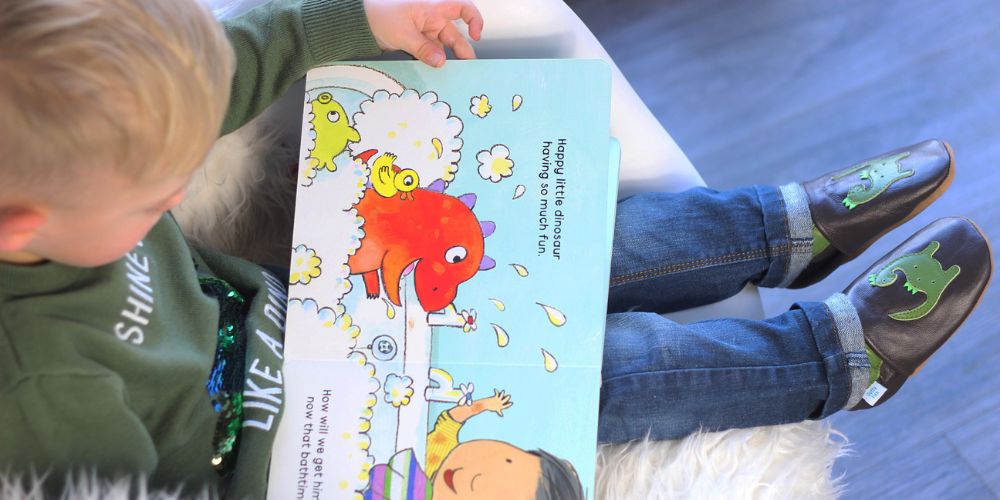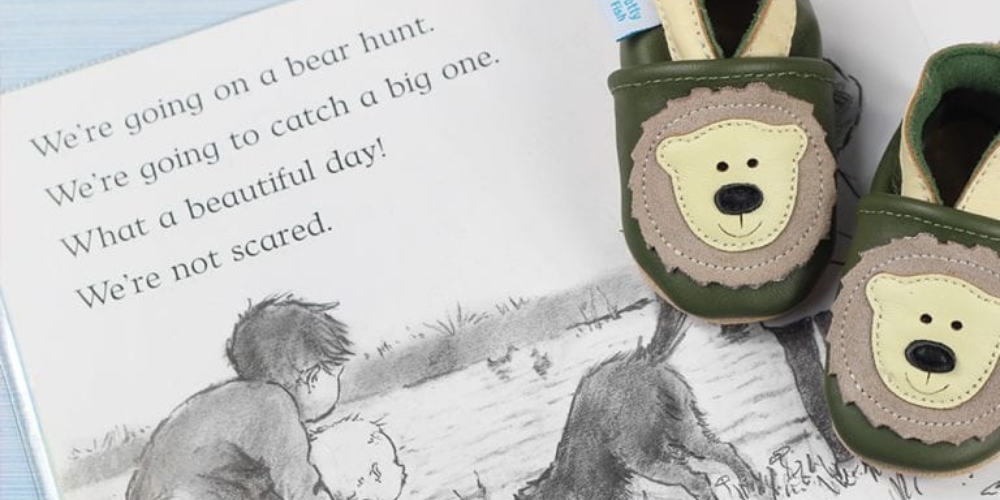Cultivating a Love of Reading in Young Children
There’s something magical about getting lost in a good book. For me, it started with The BFG—the first book that truly captured my imagination and made me fall in love with reading. From there, books have become a constant companion, whether it’s the comfort of a light hearted rom-com, the excitement of stepping into a whole new fantasy world, or the joy of revisiting lifelong favourite, usually Jane Austen!
Many of us can trace our love of reading back to childhood—perhaps to a story that sparked something special in us. That love often begins long before we can read ourselves. Babies and toddlers may not yet recognize words, but they delight in listening to stories, turning pages, and exploring books in their own way. By making reading a regular and enjoyable part of their day, we can help nurture their curiosity and set them on the path to a lifelong love of books.
Here are some simple and fun ways to encourage early reading and make books a treasured part of your child’s world.
A love of reading often starts in childhood, sparked by a story that captures our imagination—by making books a fun and regular part of a toddler’s world, we can help nurture that lifelong passion.
Benefits of Early Reading
Reading with toddlers not only brings joy but also plays a vital role in their overall development. Here are some of the benefits:
- Strengthens Parent-Child Bond: Reading together offers quality time for bonding and creating lasting memories.
- Boosts Language Skills: Hearing new words in different contexts expands vocabulary and helps language development.
- Encourages Imagination and Creativity: Books introduce toddlers to new worlds, fostering their ability to dream and imagine.
- Improves Focus and Patience: Even if they can’t sit still for long, regular reading helps improve attention span over time.
- Stimulates Cognitive Development: Reading promotes memory, problem-solving, and comprehension skills, preparing children for success in school.

Tips for Encouraging Toddlers to Read
Library Visits
Libraries offer an unparalleled selection of books for children, from sturdy board books to longer stories that you can enjoy together. Taking your toddler to the library introduces them to new stories and lets them choose their own books, fostering independence and excitement about reading. Many libraries also host activities like rhyme time and story sessions that promote language development and socialization, all for free!
Creating a Reading Nook
Designating a cozy space in your home as a reading nook can make reading feel even more special. Set up a comfortable area with cushions and easy access to books. This encourages your toddler to explore books independently and can make reading a fun, regular part of their daily routine.
Interactive Reading with Story Sacks
A simple way to bring stories to life is by creating a "story sack." This could be an old pillowcase or reusable bag filled with toys or props related to a particular story. For example, you can turn a classic story like Goldilocks and the Three Bears into an interactive game using familiar toys or handmade cut-outs. These sacks are a great way to encourage language development and help children engage with stories through play.

The Power of Repetition
While discovering new books is important, toddlers are creatures of habit. They often find comfort in routine and will happily listen to their favourite book over and over again. Repetition is key to language development. By hearing the same words and phrases repeatedly, toddlers begin to internalize language patterns and can start joining in. As they grow older, pause at familiar points in the story and encourage them to say the next word or line. Even babies can mimic the rhythm and pattern of speech, which gradually develops into words and sentences.
Repetition plays a crucial role in language development, as toddlers find comfort in familiar stories and gradually learn to recognize words, patterns, and rhythms through repeated reading.
Resources for Further Reading
National Literacy Trust
The National Literacy Trust is an excellent UK-based resource for parents and educators. It provides research-backed strategies to help foster literacy in children and offers articles and tips on reading with toddlers.
BookTrust
BookTrust is the UK’s largest children’s reading charity. It offers free books to families with young children and provides advice and book recommendations to make reading fun and accessible.
Talking Point
For concerns about your child’s language development, Talking Point (part of Speech and Language UK) provides a range of tools, including a Progress Checker to help track your child's speech and language milestones. They also offer expert advice and resources to support language development.

Encouraging your toddler to love books is about creating an environment where reading feels fun and accessible. From regular library visits and interactive reading activities like story sacks to the comfort of a well-loved book, reading can become a cherished part of your toddler’s routine. With patience, creativity, and a few handy tips, you can help nurture your child’s love for stories—and give them a strong foundation for future learning.

